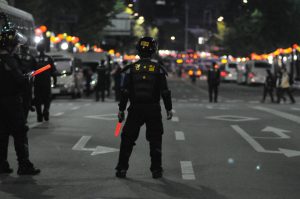Unfortunately, it’s become commonplace in our society. Horrible mass shootings take place in the United States and around the world and often follow a similar pattern: the news reports, information about the shooter, the list of the victims, and then talks of what systems should be in place so that it never happens again. Something that isn’t discussed very often is the conversations that happen within the home between parents and young children.
Why someone takes it upon themselves to kill a large number of people is unfounded and difficult to understand, but although it’s impossible to explain and hard to talk about, discussions that follow the act are important and should take place within the home, when a child is at a certain age. According to Psychology Today, young children may have difficulty distinguishing between real life and fantasy shows that show violence, recommending that children shouldn’t have too much exposure to the news before age 11. Most young children aren’t able to process the news in the way an adult can and this young age group could be negatively impacted by the gravity of the serious news stories that describe terrible violence, like in mass shootings.
Even if you don’t let your young children watch the news, they may inevitably hear about mass shootings from friends or other sources and may have questions about what happened. If your child hears of a mass shooting and asks you about it, make sure you give them the basic facts and assure them that the event is over. It’s also a good idea to highlight the brave actions of those nearby that helped those that were injured. Questions may follow and it’s good to encourage this type of dialogue so that in the future, they won’t be hesitant to open up about their feelings to you.
For older children and teenagers, it may seem like a good idea not to start a discussion with them about mass shootings because it could scare them, but the reality of the situation is that they probably already have heard about it from their peers. In this day and age, schools across the country are preparing their students and staff members for possible live shooter situations because of growing concerns that these shootings can happen at any time.
Older children and teenagers should have a better grasp of news stories and what mass shootings mean, but that doesn’t mean they are able to fully process them. What’s most important is that they are able to express their feelings about the events with a parent or guardian at home. Answer any questions they have and get their take on the event the day it happens because if they’re on social media, they’ll hear about it and draw conclusions based on what is posted.


